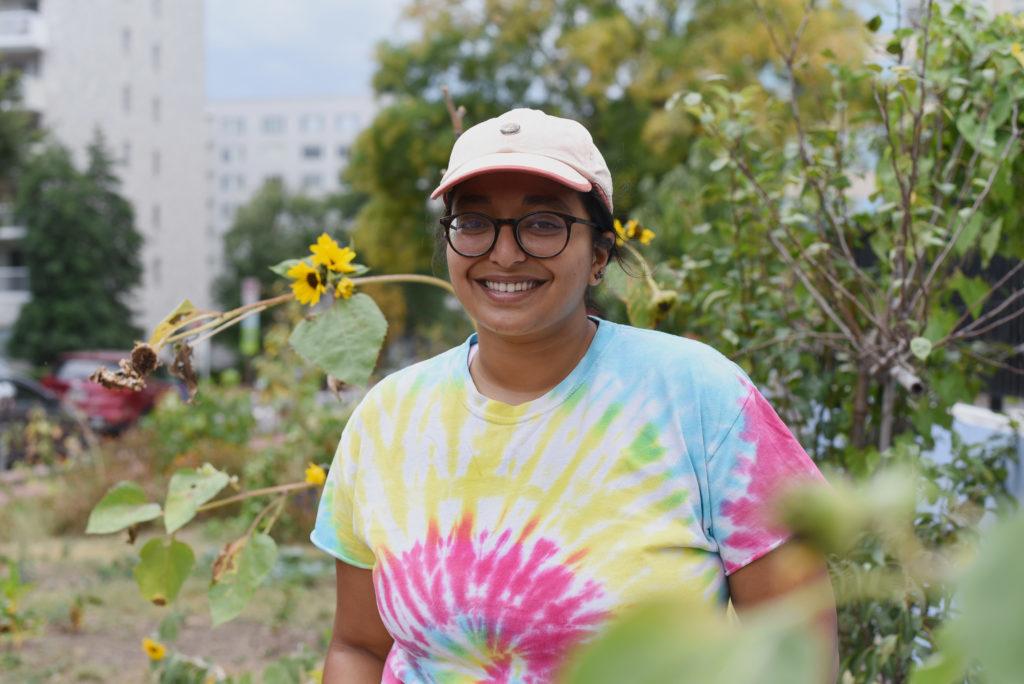After enrollment in a student-run locally sourced food subscription program spiked to a record high this spring, involvement dropped this fall.
The Community Supported Agriculture program – a service the GroW Garden organizes in which students buy a semester’s worth of locally sourced food – enrolled nearly 150 students in the spring compared to fewer than 100 students this fall. Students who subscribe to the program said increasing enrollment will support local food producers and allow more students to eat sustainably.
“For us at the GroW Garden, the numbers aren’t so important,” senior Hannah Brenner, one of two GroW Garden managers, said in an email. “What matters to us is the impact we’re making, whether that means having 100 people participate or 10. We are concerned with getting the message out there to eat locally and sustainably and to support local farmers.”
Brenner said the GroW Garden sends emails about the CSA program to the GroW Garden listserv and to past participants in the program to promote the service. She said the GroW Garden relies “heavily” on word of mouth to promote the CSA program.
“Students really want to join and participate when they see the price points and realize it’s an affordable way to eat as well as being good for farmers,” Brenner said.
She said the increase in enrollment over the past few years is likely because of students’ increased interest in eating ethically and sustainably, and because students can now pay for the subscription using their GWorld. While enrollment dipped between the spring and fall, involvement has still grown from 91 students in fall 2016 – when the program launched – to 98 students this fall.
Brenner added that when more students sign up for the CSA, there are more opportunities for other students to learn about the program through word of mouth.
She said she hopes enrollment in the program will continue to increase so that students can economically support a larger number of local food producers.
“The more people we have involved in the program, the more we can get the word out about how important it is to support local farmers and eat in a conscious way,” she said in an email.
Senior Sharon Shatananda, one of the GroW Garden managers, said the GroW Garden works with D.C.-based organization Community Foodworks, which subsidizes food shares through the CSA program for food-insecure individuals living in the D.C. area.
“First, you’re supporting locally from an ecological sense – you’re buying local, everything is organic and everything’s really grown around here,” she said. “But then also, you’re supporting local farmers, and then you’re also subsidizing shares for folks who maybe wouldn’t otherwise be able to get them.”
Shatananda said the GroW Garden advertises the CSA program to students throughout the academic year, so enrollment in the program is usually lower in the fall than in the spring. She said students are more conscious of what their grocery needs are as the year progresses.
She said the group will continue to ask CSA participants about their food preferences to tailor the variety of locally sourced food that is available through the program. She said students are more likely to join and remain in the program if the shares available are catered toward what foods they specifically request.
“It’s an interesting way to think about what you’re eating and how you’re operating with all the systems we have,” Shatananda said.
Shatananda said the group reaches out to green student organizations, like Green GW and Fossil Free GW, and to students taking sustainability courses about joining the program through email and social media. Members of the GroW Garden also advertise through newsletters from the Nashman Center for Civic Engagement and Public Service and the Multicultural Student Services Center.
Shatananda said students participating in the program are supporting producers who sell food sustainably and ethically rather than larger food corporations, like Whole Foods, that rely on “exploitative” labor practices, like paying workers low wages.
“If you’re buying from Whole Foods, you’re feeding into a lot of systems that are exploitative,” Shatananda said. “Here, you’re saying, ‘I’m really valuing what I eat, how it’s produced and the people that are a part of that whole system.’”
Senior Jean Joo, an international affairs major who subscribes to the CSA, said more students should enroll in the program to support the local economy and to make a habit of eating sustainably sourced food.
“It’s a good learning experience for college students, especially for us, because most students have kitchens,” Joo said.





